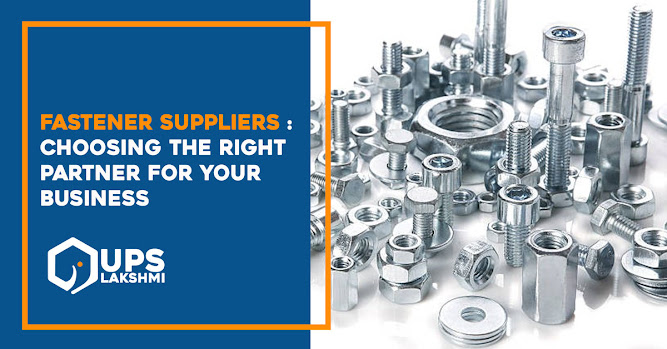Finding Reliable Fasteners Suppliers: Key Considerations
There are a number of important factors to take into account while looking for dependable fastener suppliers so that you can make an informed choice. Since the performance and safety of your applications depend on the fasteners you select, quality and dependability are crucial.
Here are some crucial things to keep in mind:
1. Reputation: A fastener supplier's reputation tells you a lot about their dependability. Look for vendors who have a proven track record and satisfied clients. A reputable supplier is more likely to regularly supply high-quality goods and give first-rate customer service.
2. Quality Control: Ensure that the supplier has a fast quality control process. This includes testing the fasteners for strength, durability, and adherence to industry standards. Ask about their quality certifications and if they conduct regular audits to maintain high-quality standards.
3. Range of Products: Consider the supplier's product range and whether it aligns with your specific needs. A reliable supplier should offer a wide variety of fasteners, including screws, bolts, nuts, washers, and rivets, in different sizes, materials, and finishes. This ensures that you can find the right fasteners for your applications without compromising on quality.
4. Manufacturing Capabilities: Understanding the supplier's manufacturing capabilities is essential. Find out if they have advanced machinery and technology to produce high-quality fasteners consistently. Inquire about their production capacity and whether they can meet your quantity requirements within your desired timeframe.
5. Customization Options: If you require specialized fasteners for unique applications, check if the supplier offers customization services. A reliable supplier should be willing to work with you to design and manufacture custom fasteners according to your specifications.
6. Supply Chain Management: Evaluate the supplier's supply chain management to ensure reliable and timely delivery. They should have efficient logistics processes in place, including warehousing, inventory management, and transportation. A well-managed supply chain ensures that you receive your fasteners on time, minimizing project delays.
7. Customer Support: Consider the level of customer support provided by the supplier. Are they responsive to inquiries and capable of providing technical assistance? A reliable supplier should have a knowledgeable and accessible customer support team that can help you with product selection, installation guidance, and any post-sales queries or concerns.
8. Pricing and Payment Terms: While cost should not be the sole determining factor, it's important to consider pricing. Compare the prices offered by different suppliers to ensure you are getting competitive rates without compromising on quality. Additionally, discuss payment terms, including any discounts for bulk orders or long-term partnerships.
9. Sustainability Practices: In today's environmentally conscious world, sustainability is an important consideration. Look for suppliers who prioritize eco-friendly practices, such as using recycled materials, optimizing energy consumption, and minimizing waste generation. Working with a supplier that aligns with your sustainability goals can contribute to a greener supply chain.
When seeking reliable fastener suppliers, considering these key factors can help you make an informed decision. Universal Precision Screws (UPS) is a leading fastener supplier and bolt and screw manufacturer that embodies many of these qualities. With a strong reputation, stringent quality control processes, a wide range of products, advanced manufacturing capabilities, and a focus on customer support, UPS Lakshmi has proven itself to be a reliable partner for businesses in need of high-quality fasteners. By prioritizing these considerations, you can find a supplier that meets your specific requirements and ensures the success and safety of your applications. To know more visit- https://www.upsind.com/




Comments
Post a Comment